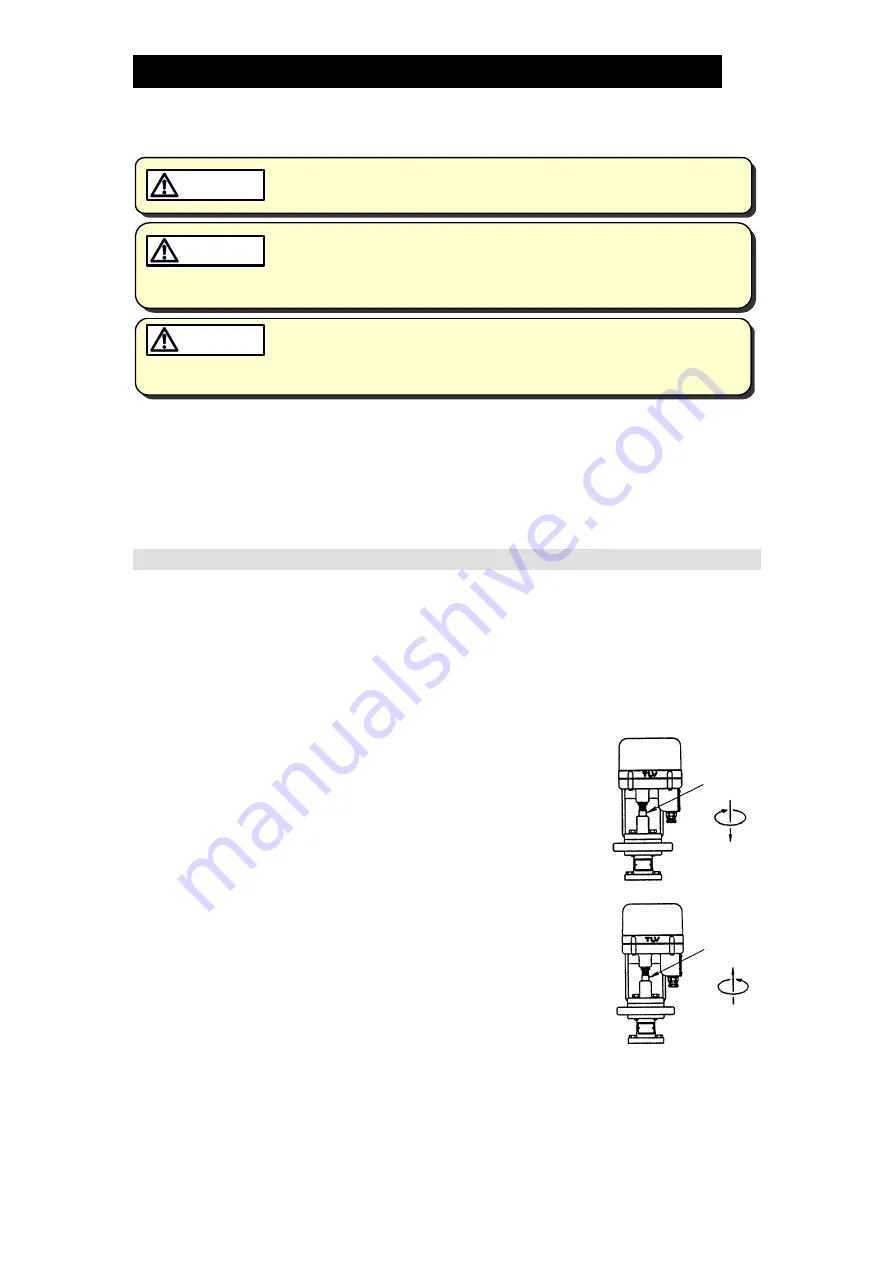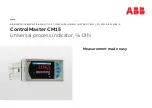
172-65169MA-08 (MC-COS Multi-control Valve) 28 May 2010
30
Troubleshooting
NEVER apply direct heat to the float. The float may explode due to
increased internal pressure, causing accidents leading to serious injury
or damage to property and equipment.
WARNING
When disassembling or removing the product, wait until the internal
pressure equals atmospheric pressure and the surface of the product
has cooled to room temperature. Disassembling or removing the
product when it is hot or under pressure may lead to discharge of fluids,
causing burns, other injuries or damage.
CAUTION
When using this product, NEVER stand close to, or leave tools anywhere
near moving parts, such as the ajustment screw. Contact with moving
parts or objects becoming caught in moving parts could lead to injury or
damage or other accidents.
CAUTION
This product is shipped after stringent checks and inspection and should perform its
intended function for a long period of time without failure. However, should there be
any problem encountered in the operation of the MC-COS, identify where the
trouble occurs and consult the troubleshooting guide below. When a problem arises,
the trouble may lie in the MC-COS drive section, pressure reducing valve (including
separator/trap) or the controller.
Identifying Problem Areas
1. Set the operation mode to MANUAL (MAN) on the controller connected to the
MC-COS. This is to enable the operation signal to the drive section to be changed
to any value.
2. Set the control output on the controller to any value. Check to make sure that the
pressure adjustment screw in the drive section is stopped completely and is not
hunting (the secondary steam pressure is stabilized).
3. Increase the control output on the controller. Check to make
sure that, as viewed from above, the pressure adjustment
screw rotates clockwise while moving downward, and that
the secondary steam pressure increases.
4. In the same manner, decrease the control output on the
controller. Check to make sure that, as viewed from above,
the pressure adjustment screw rotates counterclockwise
while moving upward, and that the secondary steam
pressure decreases.
5. If the process in steps 2. – 4. above reveals that:
• The pressure adjustment screw is operating normally but the secondary steam
pressure does not change, then see the
Pressure Reducing Valve
Troubleshooting
section.
• The pressure adjustment screw does not rotate, then go on to the next step.
Adjustment
Screw
Clockwise &
Down
Adjustment
Screw
Counter-
clockwise
& Up







































